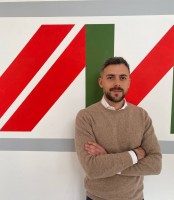
Mauro Patti, born in Italy in 1986, is an expert of international cooperation. Graduated in International Relations, has a professional background in human rights, advocacy strategy, development of social and health campaign, gained during his international experience within NGOs and public institutions.
He joined the Red Cross in 2014, covering different positions on international and national level. Currently he coordinates the international relations and cooperation of the Villa Maraini Foundation (www.villamaraini.it), the Italian Red Cross Agency on Drugs, managing international projects, advocacy initiatives on humanitarian drug policy and health campaigns on harm reduction worldwide. He's the policy assistant of its founder, Dr. Massimo Barra.
During his international career, he run training courses and advocacy projects in more than 20 countries. Mauro Patti is author of training manuals, articles, speeches and publications on harm reduction and humanitarian drug policy. During his institutional missions he had advocacy tasks and joined panels debate in national and international fora at UN and IFRC (NY, Geneva, Vienna), EU (EU Parliament and Commission), and Italian institutions. He's a co-founder of the Red Cross/Red Crescent international advocacy initiative "the Rome Consensus 2.0 towards a humanitarian drug policy" (www.romeconsensus.com).
Abstract
The cost-effectiveness of naloxone programmes for the treatment of heroin overdoses ‘on the street’ by non-medical staff: the Villa Maraini Foundation experience
The mortality rate of opioid users is 5 to 10 times greater than that of the general population, and the most common cause of death in that case is an overdose. When treated in a timely fashion with the opioid antagonist naloxone, an opioid overdose is rarely lethal. Unfortunately, many opioid overdoses occur in isolated, hidden, inaccessible locations. To circumvent this problem, the Villa Maraini Foundation (Italian Red Cross Agency on Drug) in Rome has created a rescue team called ‘the Street Unit’ to provide basic life support and administer naloxone for the treatment of opioid overdose in urban environments, by non medical staff and former drug users. The aim is to proof the cost-effectiveness Street Unit.
Method:
By comparing the cost of 90 overdose interventions provided by the Street Unit with the cost of those provided by the Accident & Emergency departments of the Italian National Health System.
Results:
The Street Unit not only successfully treated all overdoses, but also provided a dramatic reduction in costs, ranging from €123,367.05 (best-case scenario) to €203,377.05 (worst-case scenario).
